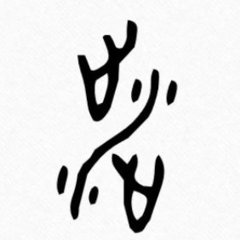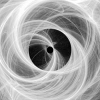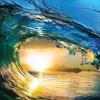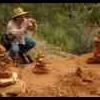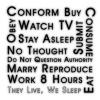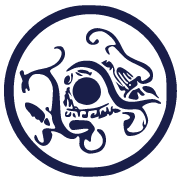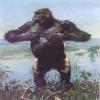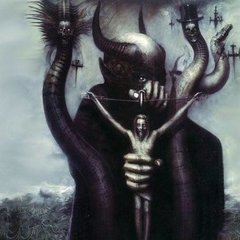Search the Community
Showing results for 'Dream'.
Found 7,590 results
-
There's different ways to 'do'. If a dream tells me to examine a certain feeling or thought pattern, I am calling that 'doing'. If I'm shown some very specific energy exercise to do for a few weeks to achieve a very specific result, that's doing. But all of this doing is exactly what I'm meant to do at any given time. And I always try to understand how each bit of doing fits into the whole, I absolutely allow my natural curiosity to be satisfied. Then there's the doing that is out of sync with your personal psyche and energy system because some random person who set themselves up as a master told you to do something, which you then do, and God only knows how that will affect your energy system, but it's almost certainly going to be negatively. There are various other ways to do as well, qigong is a doing form, mantras, prayer, I see all of them as doing. But what is non-doing exactly? Sitting in non-thought meditation? Not engaging the thinking mind in an activity? I gather to Buddhists the mind only is the creator of thoughts and emotions, so silence the mind, and there will be peace? Is the mind still used for practical daily affairs in some special way?
-

Listening to music without internal dialogue
InfinityTruth replied to InfinityTruth's topic in General Discussion
Haha, I'm only 19 but golfcarts were a blast when I was younger! When I was a lot younger like only 10 or 11 my friend lived by a lake. His parents would leave for a while and we'd go to the gravel pit or down by the boat launch and rip it up. We'd also race (his grandma had one and his parents had one, they lived next door to each other) to like his mailbox and it was the main transportation up his really steep hill. My mom hated going down the hill so she'd pick me up at the top of it and they'd drive me up with the golf cart. Most of the time we'd walk up it though. I actually got thrown from the golf cart once from him turning so hard. No harm done though, and there was this beautiful sunset on the lake that made it really memorable in a good way. Maybe it was like a subconscious wave. lol. I didn't really think of that at the time. I've never tried making music while stoned. I've thought about it though. That sounds like a lot of fun. The most beautiful/realistic music I ever heard was in a dream. I actually had two different dreams where I heard intensely beautiful music and the second one I forgot. The first one was recognizable ('where is the love' black eyed peas)it started out playing pretty quietly until it was literally blaring in my head as loud as could be. I woke up feeling like the dream world was more realistic then here. It was stunning. Wish I could do it again lol. The second one was during my first death dream I had (I woke up with sleep paralysis in my arm)and it was really intense. It was played at my funeral I think. I heard this amazing music that I should have wrote down the lyrics when I woke up, but it was 5 in the morning and I figured I'd remember when I woke up again...I forgot the lyrics. All I know is it was really masterful piano playing with a beautiful voice. I realized I was dreaming though and I woke up before it finished. -
Dream Yoga is very interesting! Ive been working with dream yoga, both as lucid dreaming and as it is presented at www.dreamyoga.com. I also have a teacher that teaches a lot through dreams. How do you practice dream yoga? Is it more like the buddhist practice or is it taoist? From another post a while ago I found that the taoist shui gong is not the same as tibetian dream yoga. What do you think, Lama Tantapa?
-

Dream of a teeth dream. My grandma, on my father's side, passed away...
ChiForce replied to ChiForce's topic in The Rabbit Hole
Just came back from the funeral service. Sorry about the rant since I can't blog this on my FB page. I have family members on it. Man, I love chatting with my lost, lost cousins and relatives of who I haven't seen in decades. I was mindful of myself and keeping my conversations with them to the minimum. It wasn't easy since all of them are married and doing quite well with their lives. What are we supposed to talk about? We didn't get along some 20 years ago and we won't be getting along now. I kept an open heart. Knowing what I know about the bardo experience, it is not even certain if my grandma's consciousness has been near her body or maybe she has already being reincarnated. Some are crying and grieving but if only they realized that they were grieving for themselves. The corpse...is just..nothing. Her consciousness isn't near her body at all. They did employ 2 monks to preform the bardo rituals. Again, I am not sure if that was even useful if my grandma's consciousness isn't with the her body anymore. Here is something interesting to think about. If the deceased consciousness has found the suitable means to be reincarnated (as a human or an animal), would the consciousness itself still attach to the former body. No, she didn't or wasn't able to become liberated in her bardo experience. I actually have a dream about her 2 days after her death. It was about her being thrown back to the cycle of existence and the suffering of the Samsara. I didn't see her in the dream but was able to acknowledge the level of merit of her entire life time. It was a poignant conclusion. -
Maybe we are more who we aspire to be than who we were previously. Dream the impossible dream type thing. It is only in dreaming that we dare to go beyond.
-
O.K. So I first sent Professor Borzacchini a math equation based on a dream I had from music theory - I mailed a scribbled note to Italy. He replied back that my math was good but I had no historical proof such a music theory equation had been used by Archytas. Indeed. He calls this the "secret of the sect" in his paper I linked - it was not published till 2007. I wrote him in 2001 after I found his discussion on a math forum. http://mathforum.org/kb/thread.jspa?forumID=149&threadID=382241&messageID=1177287#1177287 Here is it: and so on that forum in 1999 - we get tidbits from his later 2007 paper I linked above. ( O.K. I added the emphasis. Math Professor Luigi Borzacchini says this wrong music theory at the origin of Western logic is "a deep, pre-established disharmony" that secretly "guides the evolutive principle" of science. A philosophy professor Oliver L. Reiser called it the "music logarithmic spiral" from Esther Watson's research - she corresponded with Einstein about music theory. haha. I discovered their Actual Matrix Plan soon after I finished my master's thesis and so it completely corroborated my own research. https://www.bibliotecapleyades.net/ciencia/ciencia_matrix43.htm O.K. so ... but then I still had an error in my master's thesis since I did not understand the noncommutative phase logic yet. So it was not until I discovered Alain Connes that my insight in high school was corroborated. Even Nobel physicist Brian Josephson does not understand this! haha. He asked me to tell him what I thought of his music compositions and the first response he gave me when I contacted him was that he doesn't understand music theory well enough to comment on my research. Then the last response he gave me - years later - was that I don't understand music theory!! haha. Too funny. But Josephson does practice qigong - so I hope that is going well for him.
-
Some excerpts from the book, http://www.quietspaces.com/deathpoems.html: Gesshu Soko, died January 10, 1696, at age 79: Inhale, exhale Forward, back Living, dying: Arrows, let flown each to each Meet midway and slice The void in aimless flight -- Thus I return to the source. Goku Kyonen, died October 8, 1272, at age 56: The truth embodied in the Buddhas Of the future, present, past; The teaching we received from the Fathers of our faith Can be found at the tip of my stick. The story goes that when Goku felt that his death was close, he gathered this monk disciples around him. Sitting up, he gave the floor a single tap, said the above poem, raised his stick, tapped the floor again, cried, "See! See!" Then, sitting upright, he died. Hosshin, 13th century wrote: Coming, all is clear, no doubt about it. Going, all is clear, without a doubt. What, then, is all? Hosshin's last word was "Katsu!" which signifies the attainment of enlightenment. Sort of a spiritual "Eureka." Shoro, died April 1894, at age 80: Pampas grass, now dry, once bent this way and that. Sunao, died in 1926 at 39 Spitting blood clears up reality and dream alike. Senryu, died September 23, 1790, at 73: Bitter winds of winter -- but later, river willow, open up your buds. Kozan Ichikyo, died February 12, 1360, at 77. A few days before his death, he called his pupils together, ordered them to bury him without ceremony, forbidding them to hold services in his memory. After writing this poem on the morning of his death, he lay down his brush and died sitting upright. Empty-handed I entered the world Barefoot I leave it. My coming, my going -- Two simple happenings That got entangled. Senryu, died June 2, 1827 Like dew drops on a lotus leaf I vanish. Shinsui, died September 9, 1769, at 49: During his last moment, Shisui's disciples requested that he write a death poem. He grasped his brush, painted a circle, cast the brush aside, and died. The circle— indicating the void, the essence of everything, enlightenment— is one of the most important symbols of Zen Buddhism. Yoshitoshi, a printmaker who produced a series called "One Hundred Aspects of the Moon". His death poem reads: Holding back the night with it's increasing brilliance the summer moon. The death poem of Basho, one of the greatest haiku poets of all time: On a journey, ill; my dream goes wandering over withered fields. Zoso Royo died on the fifth day of the sixth month, 1276, at 84: I pondered Buddha's teaching a full four and eighty years. The gates are all now locked about me. No one was ever here - Who then is he about to die, and why lament for nothing? Farewell! The night is clear, the moon shines calmly, the wind in the pines is like a lyre's song. With no I and no other who hears the sound?
-
Looking on The Dao Bums Member Map reminds me that its a big world, so much to see. I wanna visit the Islands off the West Coast. Santa Rosa, The Channel Islands, Catalina, San Clementa, Isla Cornado.. I'd like to rent a sleep-in Van, ride from Washington State, down to Tijuana. Take my time, zig'n zag, see the sites. Wonder if I can buy one from CarMax drive it and resell it all in a couple weeks? Or this place has relatively cheap rates. https://www.cruiseamerica.com/ their Compact RV, with toilet, shower, 2 burners, furnace, AC.. looks pretty nice. If I could wrap it up with enough floaties I could probably paddle it out to the islands <kidding> addon> What about you guys.. where are your dream spots?
-
The spider symbol is also a recurrent theme of my. It isn't a harmful symbol to me. In fact, it is a protective figure. In one dream, the spider is the size of a car and it was attacking my old boss. Hahahaha......I was just standing there and watching it. In another dream, the spider was the size of a person and hanging upside down, inside a Buddhist temple. They were protecting all the monks there from the Chinese imperial army. Obviously, this was referring to some ages ago when Buddhist monks were persecuted.
-
Your statements have a lot of misunderstanding. It is totally possible and I am speaking from experience... to permanently end the illusion of self. Yes, you are right in that through the power of concentration and absorption, you may temporarily send the sense of self into abeyance, in a state of samadhi. But samadhi is NOT enlightenment. Enlightenment is a permanent realization about the nature of reality - in the seeing there is just the seen, no seer, in the hearing there is just the heard, no hearer, in the thinking there is just thoughts, no thinker. Having direct realization of this ends the illusion of self forever. This is not an experience that has entry and exit - you do not enter this, and you can never exit/escape this 'condition' - because always already, there is no self, so there is no self to remain, no self to cease, no self to [insert token]. This needs to be realized. So yes, there is no 'permanently annihilating self', since annihilating self implies there is a self, but if you realize no self, then it is seen that there is no such self to remain or cease... the illusion is seen through and what is seen cannot be unseen. This is vastly different from a temporary samadhi state. A samadhi state does not bring realization. "Life is suffering" is one of the most misquoted thing attributed to Buddha. The Buddha did not say this. He taught that there is suffering, he didn't say life is suffering or there can only be suffering. Please read this article: http://www.accesstoinsight.org/lib/authors/thanissaro/lifeisnt.html ...You've probably heard the rumor that "Life is suffering" is Buddhism's first principle, the Buddha's first noble truth. It's a rumor with good credentials, spread by well-respected academics and Dharma teachers alike, but a rumor nonetheless. The truth about the noble truths is far more interesting. The Buddha taught four truths — not one — about life: There is suffering, there is a cause for suffering, there is an end of suffering, and there is a path of practice that puts an end to suffering. These truths, taken as a whole, are far from pessimistic. They're a practical, problem-solving approach — the way a doctor approaches an illness, or a mechanic a faulty engine. You identify a problem and look for its cause. You then put an end to the problem by eliminating the cause... ...Other discourses show that the problem isn't with body and feelings in and of themselves. They themselves aren't suffering. The suffering lies in clinging to them. In his definition of the first noble truth, the Buddha summarizes all types of suffering under the phrase, "the five aggregates of clinging": clinging to physical form (including the body), feelings, perceptions, thought constructs, and consciousness. However, when the five aggregates are free from clinging, he tells us, they lead to long-term benefit and happiness. So the first noble truth, simply put, is that clinging is suffering. It's because of clinging that physical pain becomes mental pain. It's because of clinging that aging, illness, and death cause mental distress. The paradox here is that, in clinging to things, we don't trap them or get them under our control. Instead, we trap ourselves. When we realize our captivity, we naturally search for a way out. And this is where it's so important that the first noble truth not say that "Life is suffering." If life were suffering, where would we look for an end to suffering? We'd be left with nothing but death and annihilation. But when the actual truth is that clinging is suffering, we simply have to look for the clinging and eliminate its causes... This isn't true, suffering does not require pleasure. Also, suffering is not displeasure. Unpleasurable sensations can arise yet without mental aversion or suffering. The world is not an illusion, and there is no reality apart from the world. But this not to say that the world is real (inherently, independently, permanently existing) - there is no independent existence of the world of its own as all appearances dependently originate without anything that can be pinned down as having inherent reality. The world is like an illusion, but not an illusion, looks there but isn't really there. http://awakeningtoreality.blogspot.com/search/label/Acharya%20Mahayogi%20Shridhar%20Rana%20Rinpoche First of all, to the Buddha and Nagarjuna, Samsara is not an illusion but like an illusion. There is a quantum leap in the meaning of these two statements. Secondly, because it is only ‘like an illusion’ i.e. interdependently arisen like all illusions, it does not and cannot vanish, so Nirvana is not when Samsara vanishes like mist and the Brahma arises like the sun out of the mist but rather when seeing that the true nature of Samsara is itself Nirvana. So whereas Brahma and Samsara are two different entities, one real and the other unreal, one existing and the other non-existing, Samsara and Nirvana in Buddhism are one and not two. Nirvana is the nature of Samsara or in Nagarjuna’s words shunyata is the nature of Samsara. It is the realization of the nature of Samsara as empty which cuts at the very root of ignorance and results in knowledge not of another thing beyond Samsara but of the way Samsara itself actually exists (Skt. vastusthiti), knowledge of Tathata (as it-is-ness) the Yathabhuta (as it really is) of Samsara itself. It is this knowledge that liberates from wrong conceptual experience of Samsara to the unconditioned experience of Samsara itself. That is what is meant by the indivisibility of Samsara and Nirvana (Skt. Samsara nirvana abhinnata, Tib: Khor de yer me). The mind being Samsara in the context of DzogChen, Mahamudra and Anuttara Tantra. Samsara would be substituted by dualistic mind. The Hindu paradigm is world denying, affirming the Brahma. The Buddhist paradigm does not deny the world; it only rectifies our wrong vision (Skt. mithya drsti) of the world. It does not give a dream beyond or separate transcendence from Samsara. Because such a dream is part of the dynamics of ignorance, to present such a dream would be only to perpetuate ignorance.
-
I'm not going to get involved with the blame game and which country has the most morons (although it is a good one because we all win!)...Howeverrrrrr... I did have a dream about giant black transdimentional spider-like things tearing up the world...about 3 months ago I guess. Still, I'm pretty sure that one was just a regular dream.
-

Do these practices lead to Demonic Possession?
Gerard replied to yondaime109's topic in General Discussion
Demons, gods, possession ---> it's all a product of FEAR and a terrible feeling of guilt. Religions are created by man and often promote these emotions and talk about this fantastic beings. It's all a mental projection of those who believe in them. You believe in gods ---> you'll see gods. You believe in one God ---> you will see one God. You believe in demons ---> your Mind will create demons. Buddhism is not alien to this but something I really like about this religion is this: He admonished his disciples to 'be a refuge to themselves', and never to seek refuge in or help from anybody else. ^5 There is no need to follow a particular religion. Find the best method suited to you and your personal circumstances and practice in earnest. This is called "practice." By the way never forget the First Truth of Existence: Mind Creates Reality. Everything you feel, see, think, perceive, sense, touch, dream, etc. is a manifestation of your own Mind. Fear nothing for if you fear something is because of your own 'ignorance,' your lack of understanding that the Mind is multidimensional and certainly the most complex mechanism of Reality. Work hard on understanding your own Mind. Understanding and grasping your own Mind will lead you to understanding the Whole for you are a tiny fraction of the Whole while holding within the entire Whole. This is the key to this personal incarnation of yours and future ones. Demons are as real you want them to be. -
The I-ching as the currently extant text, and the concept of hexagrams, are not mentioned by the either of the sages and was not probably even significant or known at all to them,. However, both of them touched on the topic of divination. For Lao-zi, divination is far inferior to the intuitive knowledge of the sage-king; while ZZ ridicules it thusly: Zhongni said, 'The spirit-like tortoise could show itself in a dream to the ruler Yuan, and yet it could not avoid the net of Yu Qie. Its wisdom could respond on seventy-two perforations without failing in a single divination, and yet it could not avoid the agony of having its bowels all scooped out. We see from this that wisdom is not without its perils, and spirit-like intelligence does not reach to everything. A man may have the greatest wisdom, but there are a myriad men scheming against him. Fishes do not fear the net, though they fear the pelican. Put away your small wisdom, and your great wisdom will be bright; discard your skilfulness, and you will become naturally skilful. A child when it is born needs no great master, and yet it becomes able to speak, living (as it does) among those who are able to speak.' https://ctext.org/zhuangzi/ens?searchu=divine
-

Why do only very few Dzogchen practitioners attain rainbow body?
doc benway replied to Wells's topic in Buddhist Discussion
Yes, the workshops cost real money - this one is, I think, 4 weeks with multiple video teachings, online forums where Rinpoche participates and answers questions, etc... It's not cheap but you get a lot for your money. The alternative is to simply work from the book: http://www.amazon.com/The-Tibetan-Yogas-Dream-Sleep/dp/1559391014 That's what I've done for the past 6 months. You get more from the online workshop but the book is enough for the right student (dovetails into our concurrent discussion, no?). If you decide to work with it and have questions or want to share notes, contact me. PS - I think that he will be teaching a 2 week workshop on dream yoga next summer in Virginia. -
Hi All I was just lying down, watching my breath. Soon I was totally relaxed, but NOT asleep. I was awake. I was conscious. Something weird happened. I saw images, as we do while dreaming (continuous images that run like a story, NOT random thoughts), but I wasn't asleep, so it can't be called a dream, right? But if not a dream, what was it? Was it hypnagogia? Put simply, my situation is like this: * Meditated to reach relaxed state * Saw continuous images (like a story), similar to dream * But I was fully conscious that I was seeing those images in meditation, so it couldn't be a dream * What then was it, hypnagogia? Sorry for breaking it down like this, but it seems important to know what I experienced.
-
I've been lucid dreaming since I was a kid. First found out it had a name in 6th grade. For a period of about 4 years (last two years of high school, first two years of college), I was really into lucid dreaming. Got really serious into that mind hacking stuff and whatnot. Trying to be lucid every night, trying to get to know my subconscious, memories I had forgotten (like pages upon pages of textbooks- being able to recall any info through 100% lucid dream would be VERY handy), contacting spirits, or whatever else dreams are made of. One week I did some "seclusion" thing. Didn't leave my apartment for a week. No tv. No internet. No friends or family. Lots of mediation, reflection, and focus on lucid dreaming. Had to clear out the surface layer of mind to ease into the dream state. Well I noticed THEN, EXACTLY how much dream material is from day to day thoughts and actions. A LOT. Even thinking about meditation gets turned around and stuff like that. Ever since that time, I've been able to trace exactly where all of my dreams come from- what snippets of conversation I've overheard, etc etc etc. And that, in and of itself, has some value. And I suppose I should note that even during that seclusion, I didn't have that dramatically higher a frequency of successfully inducing lucid dreams. My point is, lucid dreaming, unless you are just one of those souls with the karma to do it "right" from the get go, is going to be nothing but your own fantasies, projections, unresolved issues, and other assortments of mental clutter. For it to get beyond that, again, you either have to be that 1 in a million person who can resolve it on their own, or you have to have some type of practice that sorts through all the gunk that is in your mind. After that, lucid dreams, prophetic dreams, communing with spirits, etc, will happen as a RESULT of your overarching practice. Not the other way around. I don't say this to discourage anybody, because I do think a lot of good stuff can be done with dreams even if it is only ever at the "mental inventory phase". But, unless you are that 1 in a million person, it is my humble opinion that it is highly unlikely that it will ever get to anything significantly meaningful.
-
"Give us a moment. . . . For what would seem to you to be eons, according to your time scale, men were in the dreaming state far more than they were in the waking one. They slept long hours, as did the animals—awakening, so to speak, to exercise their bodies, obtain sustenance, and, later, to mate. It was indeed a dreamlike w;orld, but a highly charming and vital one, in which dreaming imaginations played rambunctiously with all the probabilities entailed in this new venture: imagining the various forms of language and communication possible, spinning great dream tales of future civilizations replete with their own built-in histories—building, because they were now allied with time, mental edifices that automatically created pasts as well as futures. These ancient dreams were shared to some extent by each consciousness that was embarked upon the earthly venture, so that creatures and environment together formed great environmental realities. Valleys and mountains, and their inhabitants, together dreamed themselves into being and coexistence." Source: Seth - Dreams, Evolution & Value Fulfillment On the other hand: "According to Aboriginal belief, all life as it is today - Human, Animal, Bird and Fish is part of one vast unchanging network of relationships which can be traced to the great spirit ancestors of the Dreamtime. Dreaming world was the old time of the Ancestor Beings. They emerged from the earth at the time of the creation. Time began in the world the moment these supernatural beings were "born out of their own Eternity". The Earth was a flat surface, in darkness. A dead, silent world. Unknown forms of life were asleep, below the surface of the land. Then the supernatural Ancestor Beings broke through the crust of the earth form below , with tumultuous force. The sun rose out of the ground. The land received light for the first time. The supernatural Beings, or Totemic Ancestors, resembled creatures or plants, and were half human. They moved across the barren surface of the world. They travelled hunted and fought, and changed the form of the land. In their journeys, they created the landscape, the mountains, the rivers, the trees, waterholes, plains and sandhills. They made the people themselves, who are descendants of the Dreamtime ancestors. They made the Ant, Grasshopper, Emu, Eagle, Crow, Parrot, Wallaby, Kangaroo, Lizard, Snake, and all food plants. They made the natural elements : Water, Air, Fire. They made all the celestial bodies : the Sun, the Moon and the Stars. Then, wearied from all their activity, the mythical creatures sank back into the earth and returned to their state of sleep. Sometimes their spirits turned into rocks or trees or a part of the landscape. These became sacred places, to be seen only by initiated men. These sites had special qualities." http://www.aboriginalart.com.au/culture/dreamtime2.html Spot on. This wonderful creation tale is right up my alley. No Abrahamic or Hindu gods of any kind in sight which only cause FEAR in humans. Both Seth and ancient traditions like the Australian Aboriginal share identical views. We are also very familiar about those supercharged sites where energy and meditative work is greatly enhanced. Note: you can read the Seth book here.
- 6 replies
-
- 2
-

-
- ancient beings
- australian aboriginal
-
(and 1 more)
Tagged with:
-
Thank you, Grandmaster P. I'll share my Bruce Lee dream. Occurred early last week. I'd been on a (Western) Pagan path for some time (along with recent major personal upheavals, insights, etc). I'm also well-read in Jungian psychology. A synchronicity recently occurred of a specific name (Maud[e]), a dragon, a pearl, and the Child archetype. I figured this was all within a Western context (and didn't then know the English story of "Maud and the Dragon"). What a surprise, then, to dream last week of going into my local public library, sitting, and soon noticing someone nearby. Bruce Lee! I was understandably shocked. We talked, and I told him that Brandon's death had saddened me. Bruce is the Dragon. Brandon is his Child. After "seeing through" various Western pathologies, I understood that my unconscious mind was signaling me to embrace Taoism. And here I am.
-
Having ingrained opinions and a high estimate of one's own conduct, leaving the world behind and being different from common society, engaging in lofty discussions and resentfully slandering others - all this is merely indicative of arrogance. But it is favored by the scholars of mountain and valley, men who censure the world and throw themselves with withered visage into the watery depths. Discoursing on humaneness, righteousness, loyalty, and trustworthiness, being reverent, frugal, deferential, and yielding - all this is merely indicative of selfcultivation. But it is favored by the scholars who wish to bring peace to the world, men who teach and instruct, who pursue learning at home and abroad. Discoursing on great merit and establishing great fame, observing the ceremonies for lord and subject, and rectifying those on high and those below - all this is merely indicative of governing. But it is favored by the scholars of court, men who honor their ruler and strengthen his state, who devote themselves to incorporating other states. Retiring to bogs and marshes, dwelling in the vacant wilderness, fishing and living leisurely - all this is merely indicative of nonaction. But it is favored by the scholars of rivers and lakes, men who flee from the world and wish to be idle. Blowing and breathing, exhaling and inhaling, expelling the old and taking in the new, bear strides and bird stretches {{Readers familiar with Yoga will immediately recognize the regimen described in this sentence as a close Chinese adaptation of that ancient Indian discipline.}} all this is merely indicative of the desire for longevity. But it is favored by scholars who channel the vital breath and flex the muscles and joints, men who nourish the physical form so as to emulate the hoary age of Progenitor P'eng. If someone could be lofty without having ingrained opinions, cultivate himself without humaneness and righteousness, govern without merit or fame, be idle without rivers or lakes, and live long without channeling and flexions, {{Like channeling, a type of Yoga-inspired Taoist exercise designed to increase one's longevity.}} he would forget everything, yet he would possess everything. His tranquillity would be unlimited, yet a multitude of excellences would follow in his wake. This is the Way of heaven and earth, the integrity of the sage. Therefore, it is said, "placidity, mildness, quietude, indifference, emptiness, nonbeing, and nonaction - these are the root of heaven and earth, the substance of the Way and virtue." Thus the sage rests in them. Resting, he is peaceful and easeful; peaceful and easeful, he is placid and mild. Hence worries and troubles do not assail him, pernicious influences do not assault him. Consequently, his integrity is intact and his spirit is undiminished. Therefore, it is said, the sage "walks with heaven in life and evolves with things in death. In stillness, he shares the same integrity as yin; in movement, he shares the same current as yang." He is not the founder of fortune, nor is he the initiator of misfortune. He responds when affected, moves when pressed, and arises only when he has no other choice. He rids himself of knowledge and precedent, conforming to the principle of heaven. Thus, there will be "no calamity from heaven, no encumbrance from things, no censure from men, and no reproach from ghosts." His life is like floating; his death is like resting. He does not have anxious thoughts; he does not make plans beforehand. He is "bright but not dazzling," trustworthy but not expectant. He "does not dream when he is asleep, does not worry when he is awake." His spirit is unadulterated; "his soul does not weary." His emptiness, nonbeing, placidity, and mildness are a match for the integrity of heaven. Therefore, it is said, sorrow and joy are perversions of integrity; happiness and anger are transgressions of the Way; likes and dislikes are failings of the mind. Thus, when the mind is free from anxiety and joy, that is the ultimate of integrity. When it is unified and unchanging, that is the ultimate of stillness. When there is nothing that irritates it, that is the ultimate of emptiness. When it has no dealings with other things, that is the ultimate of mildness. When there is nothing that runs counter to it, that is the ultimate of purity. Therefore, it is said, when the physical form is toiled without rest it will become fatigued; when the spiritual essence {{The word for "essence" in Old Sinitic also meant "semen." Because of this identification, the Taoist adept was always very careful not to spill his semen thoughtlessly since that constituted a loss of spiritual essence. This helps to account for the elaborate regimes of sexual hygiene that were practiced in several branches of Taoism.}} is used without end it will be exhausted, toiled then exhausted. The nature of water is to be clear when unadulterated, to be level when undisturbed. But if it is blocked and not allowed to flow, it cannot retain its clearness. This is a symbol for the integrity of heaven. Hence, it is said, to be pure and unadulterated, to be still and unchanging, to be mild and nonactive, to walk with heaven when one moves - this is the Way to nourish the spirit. Now, he who owns a fine sword from the southeast stores it in a scabbard, not daring to use it lightly - this is the pinnacle of preciousness. But the spiritual essence flows forth in all directions, never reaching a limit. It borders heaven above, encircles the earth below, transforming and nurturing the myriad things. It cannot be symbolized, but its name is "With Deus." {{Ti, the supreme deity; a deified royal ancestor. This word is sometimes translated as "God" or "gods." In later usage, it also came to mean "emperor."}} The Way of purity and plainness lies only in guarding the spirit. Guard and do not lose it, becoming one with the spirit. The essence of oneness will pervade and join with the order of heaven. There is a proverb that says, "The masses of men emphasize profit; the incorruptible scholars emphasize fame; wise men esteem will; the sage values essence." Hence plainness may be defined as what is unalloyed, and purity as keeping the spirit undiminished. One who can embody purity and plainness may be called a "true man."
-
WEll the reason I guess it doens't manifest into a full erection is probbaly due to the fact that I don't want to think about sex too often. If I do, I try to make it as "karezza/neotantric" as possible or just.. well... a female I like, and it's just touching or eye contact and smiling (imagination of course) and channeling "love energy", getting the energy to rise rather than stay stagnant in the penis. Because usually what happens after I fantasize about sex is after it goes down I start leaking precum or something. That's when I know I've lost something. Maybe that is the 'toxic' part of the semen that is coming out? THe part that has accumulated which may also be an 'excess' that sometimes it's ok, or if not better that it comes out and especially during a wet dream? Usually though I'm so.. retentive (I guess) in trying to channel it that I think subconsciously it does this automatically when I have a wet dream and it doesn't even cause an ejaculation in the real world, regardless if I may have one in the dream world. BUt those have started to die down since I stopped entertaining sex fantasies. NOw I just feel my organ stir, and try to channel it upwards.
-
OK to start there are some things you need to be aware of... I want to keep this "open ended", and I want to avoid giving power to something by saying it exists. Also I do not believe in destiny, fate, karma or sin. I think there may be a purpose to one's life, that maybe that came into life with the purpose, and that there may be a dream someone has about something they want to do that ties in with that purpose. Essentially I think there is a sort of True Path or Best Path or The Most Correct Path or something like that, and we need to be able to release and let go of anything that would interfere with our walking that path. One's purpose and possible one's dream is found in walking that path as freely and unobstructively as possible. One's truest happiness and joy comes from walking that path. You do not need to believe these things as I do to help me. Only to understand the concept I am trying to express here. So these are some statements: My desire... To do the things... I am interested in doing... Is protected... As long as it's compatible... With my path (pause.) My desire... To do the things... I am interested in doing... Is strong... As long as it fits... With my path (pause.) My desire... To do the things... I am interested in doing... Is retained... As long as it fits... With my path (pause.) I have the desire... To do the things... I am interested in doing... Until I need... To let it go (pause.) Unless I need... To let it go... I keep the desire... To do the things... I am interested in doing (pause.) Unless I should let it go... I retain the desire... To to the things... I am interested in doing (pause.) If it fits... With my path... I have a strong desire... To do the things... I am interetsed in doing (pause.) If it fits... With my path... My desire... To do the things... I am interested in doing... Is protected (pause.) If it fits... With my path... My desire... To do the things... I am interested in doing... Is retained (pause.) I hope you can see what I am trying to do here. This is for a second version of my latest self-hypnosis script entitled, "DRIVE." I have the sense of a possible agency, energy or force that, not being able to keep me from doing the things I am interested in doing, because of the new programming, is now attacking the desires itself. Without assuming such an agency, energy or force exists, and while using the admit, allow and accept process, I want to stop any such possible attacks. I know the script works, that the new programming does work. I started up modeling and exercising again, among other things. I wanted to do these things I am interested in doing again. But today it felt like desire was waning. The conscious mind and the ego are amazing constructs. Trying to work against these mechanisms, to interfere with their interference, is not an easy task. I just want to ensure that they didn't find another way to stop me here. Just want to make a simple statement along the lines of the ones I have posted here. One sentence, as clear and open-ended as possible. Any ideas or suggestions? Please post.
-

A practitioner's responsibility
Michael Sternbach replied to doc benway's topic in General Discussion
I think an important clarification is due. Taking responsibility for everything we experience has nothing to do with self-blame and guilt. What it means is simply to understand that the energies we carry around and radiate tend to attract certain things to us. Those energies are often the result of deep rooted beliefs and emotional traumas. Change at those levels is not always an easy matter. We may have plenty of issues that we are hardly even aware of. Although our external experience may provide us with clues - if we manage to avoid the blame and self-blame game. Valuable insight can only be gained from a more detached vantage point here. A useful analogy may be dream interpretation. There is a general understanding that what we experience in our dreams reflects the thoughts and emotions that live inside us, and may indeed help us understand what is happening on various levels of our psyche. Now the philosophy of personal responsibility implies that even the external reality of our waking hours is not as disconnected from us as it seems. Internal and external reality are closely interlinked. The observer is not truly separated from the observed. It has been suggested in this thread to practically explore this topic, starting with rather innocuous examples and working from there. That seems like a wise approach, generally speaking. Over time, a more comprehensive understanding may develop. I have heard that the Buddha had full comprehension of this, and I assume that this is true for other Avatars as well. Again, I would like to emphasize that this topic is not exclusively a Buddhist or Dzogchen teaching, and would be relevant only to the practitioners of the latter. Although Dzogchen's particular approach sounds interesting and I am curious to learn more about it. The psychotherapist I used to collaborate with back in the 90's was employing the model of an 'external stage' paralleling an 'internal stage'. This was at the very core of the method of psychodrama that he had developed. He often said: "As inside, so outside". And he had a way of applying this concept quite playfully (!) even to situations of grave suffering, in ways that his clients did not find flippant or respectless, but sensible and helpful. Again, I appreciate that this valuable topic has been brought up eventually. In fact, I once thought of starting a thread on this theme myself, but could not find an anchor that seemed suitable for TDB at the time. Little was I aware of the role it plays in Tibetan Buddhism until now. -
We can see our own past lives when a certain degree of freedom from conditioning happens. It is strange when it happens, because it's like watching something in a dream. Our problem is that we think we've become "smarter" because we use more technology. Nothing could be farther from the truth. We are grotesquely out of balance. We're like body builders who only do left bicep curls and nothing else. Our rational minds are like that left bicep. Disproportionally oversized and overwhelming all other aspects of our being
-
I've started a Path of the Light practices thread in Group Studies and I'll pick this up there more fully (eventually), as what I know about the subject is probably heresy as far as the Tibetans are concerned. I learned the practice after buying a Nova Dreamer (and a study course back in the 1990s), which jump-started me with it. If you want a quick-start technology-free guide this website http://obe4u.com/how-to-lucid-dream/ is probably the easiest way to get yourself lucid really fast. There's also a fairly useful practice that can be done on awakening that's going to be the main focus of what I'll be discussing in the Group Studies thread. If you do struggle going lucid and you want a bit of help, I'm very happy to discuss it more specifically by PM before I pick it up in the Group Studies thread. Good luck and enjoy! ☮️
-
Teacher said that levitation was a waste of energy and useless because it was so slow, that astral projection was almost instant and required much less energy, but that to do astral projection you had to have no negative thoughts or comments for about seven years ... so each day I tell myself: "dang, seven more years to go". In fact, now that I think of it I would say that the method for levitation is quite similar to that of astral projection. The going faster horizontally rather than vertically is simply my own experience in my dream lessons, but here in the realm of matter it does take more energy to go against the gravity gradient (upwards) while it takes no energy to go with the gravity gradient (downwards), or ignoring the gravity gradient (sideways). Anyway, flying (lucid) dreams are about as much fun as you can have in private in the night time. In the immaterial spirit realm it shouldn't require much energy to move along like a dragon. Interestingly, while most dreams are forgotten, the lucid dreams about flying and some other psychic knowings stay sharp in der memory for a long time.

